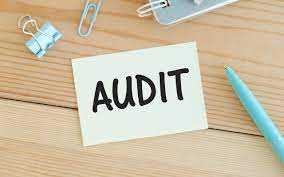
Audit for EducationalInstitutions

Tax Audit for EducationalInstitutions threshold limit and due date for educational institutions like schools, colleges, universities and professional schools in India are as follows:
Threshold Limit:
Education institutions required to get a tax audit done if their total gross receipts or turnover exceed ₹1 crore in a financial year.
If the institution’s receipts are below this threshold, a tax audit is not mandatory.
Due Date of Tax Audit Report:
The due date for filing the tax audit report for educational institution falls on the 30th of September of the assessment year.
Assessment year is the year following the financial year for which the audit is being conduct.
For example, if the financial year is from April 1, 2022, to March 31, 2023, the assessment year would be 2023-2024 and the due date for the tax audit report would be September 30, 2023.
It’s crucial for educational institution to ensure timely compliance with the tax audits requirements to avoid penalties or legal issues.
To visit: https://www.mca.gov.in/
FAQs:
- What is an audit for educational institutions?
An audit is a systematic review of an institution’s financial statements, operations, and compliance with relevant laws and regulations.
- Why is an audit necessary for educational institutions?
It ensures financial accountability, compliance with regulations, and proper use of funds, especially for institutions receiving government funding.
- Who conducts the audit for educational institutions?
Audits are typically conduct by independent certified public accountants (CPAs) or external auditors.
- What are the common types of audits for educational institutions?
Common audits include financial audits, compliance audits, and internal audits.
- How often should an educational institution be audited?
Institutions are usually audited annually, but the frequency can vary base on funding requirements and organizational size.
- What is a compliance audit?
A compliance audit ensures that the institution adheres to laws, regulations, and policies, particularly regarding the use of federal or state funds.
- What are the main areas an auditor reviews?
Auditors typically review financial records, internal controls, payroll, procurement, and grants management.
- What is the role of internal controls in an audit?
Internal controls help safeguard assets, ensure the accuracy of financial records, and promote efficient operations, which auditors assess for effectiveness.
- What happens if irregularities are found during an audit?
If irregularities are found, the institution must correct the issues, which could include changes to financial reporting practices or policies.
- How can educational institutions prepare for an audit?
Institutions should maintain accurate financial records, ensure compliance with regulations, and review internal controls regularly to ensure readiness for an audit.
These FAQs offer a high-level overview, but specific audit requirements may vary depending on the region and type of institution.

For further details access our website: https://vibrantfinserv.com
![]()


